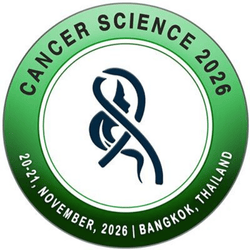Track: Oncology Nursing & Patient Care Models

Oncology Nursing & Patient Care Models focuses on innovative, evidence-driven approaches that guide nursing practice throughout the cancer care continuum. This session discusses how oncology nurses evaluate symptoms, manage treatment toxicities, deliver emotional support, and coordinate multidisciplinary care. It highlights the importance of patient navigation, tele-oncology tools, survivorship planning, and personalized education strategies that empower patients and families.
Patient-Centered Care Model - This model prioritizes the patient’s values, preferences, and emotional needs. Oncology nurses collaborate with multidisciplinary teams to tailor treatment plans, provide continuous communication, and ensure patient comfort. It enhances satisfaction, improves trust, and supports better decision-making by actively involving patients in every stage of their cancer journey.
Evidence-Based Nursing Practice - This model relies on clinical research, standardized guidelines, and outcome-based protocols. Nurses use validated tools to assess symptoms, implement safe treatment interventions, and monitor patient progress. It reduces complications, enhances treatment accuracy, and ensures that each care decision is supported by the latest scientific findings.
Multidisciplinary Care Coordination - Oncology nurses act as care coordinators connecting patients with oncologists, surgeons, radiologists, and rehabilitation teams. This model streamlines treatment timelines, improves communication, and reduces duplication of services. It ensures patients receive integrated, continuous care across diagnostic, treatment, and follow-up stages.
Palliative and Supportive Care Model - Focused on symptom relief and quality of life, this model supports patients at all cancer stages—not only end-of-life care. Nurses manage pain, fatigue, nausea, and emotional distress while offering family support. It helps patients cope better with treatment burdens and enhances overall well-being.
Survivorship Care Model - This model supports patients after completing primary cancer treatment. Nurses create individualized survivorship plans covering follow-up schedules, lifestyle guidance, late-effect management, and psychosocial support. It helps survivors transition to normal life, maintain long-term health, and reduce the risk of recurrence.
Technology-Enhanced Nursing Care - This model incorporates telemedicine, remote monitoring, digital symptom trackers, and electronic health tools. Nurses use technology to monitor patient progress, provide virtual counseling, and ensure continuity of care. It improves accessibility, minimizes hospital visits, and offers real-time support to patients across diverse settings.
Scientific Highlights
- Cancer Research
- Types of Cancer
- COVID 19 Impact on Cancer
- Screening & Diagnosis for Cancer
- Cancer Biology and Genetics
- Theraphies for Cancer Treatment
- Cancer and Oncology Nursing
- Molecular Pathways and Signaling
- Breast Cancer and Treatments
- HER2 Positive Breast Cancer
- Breast Cancer Surgery
- Radiology and Oncology
- Oncology Nursing & Patient Care Models
- Palliative & Supportive Oncology Care
- Advances in Breast Cancer Immunotherapy
- Liquid Biopsies in Early Cancer Detection
- Robotic Assisted Breast Cancer Surgery
- Triple Negative Breast Cancer (TNBC)
- Genomics and Cancer Biomarkers
- Artificial Intelligence in Cancer Prognosis
- Precision Onco-Urology
- Supportive & Integrative Cancer Care


